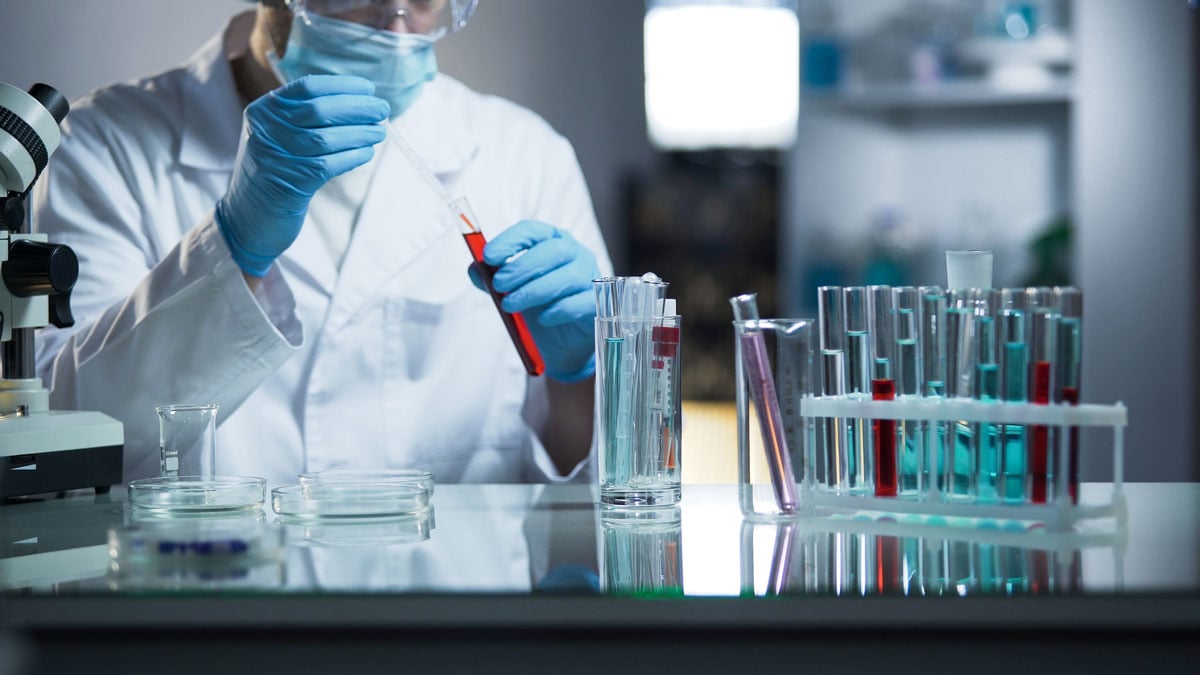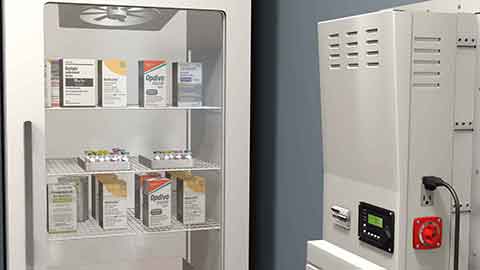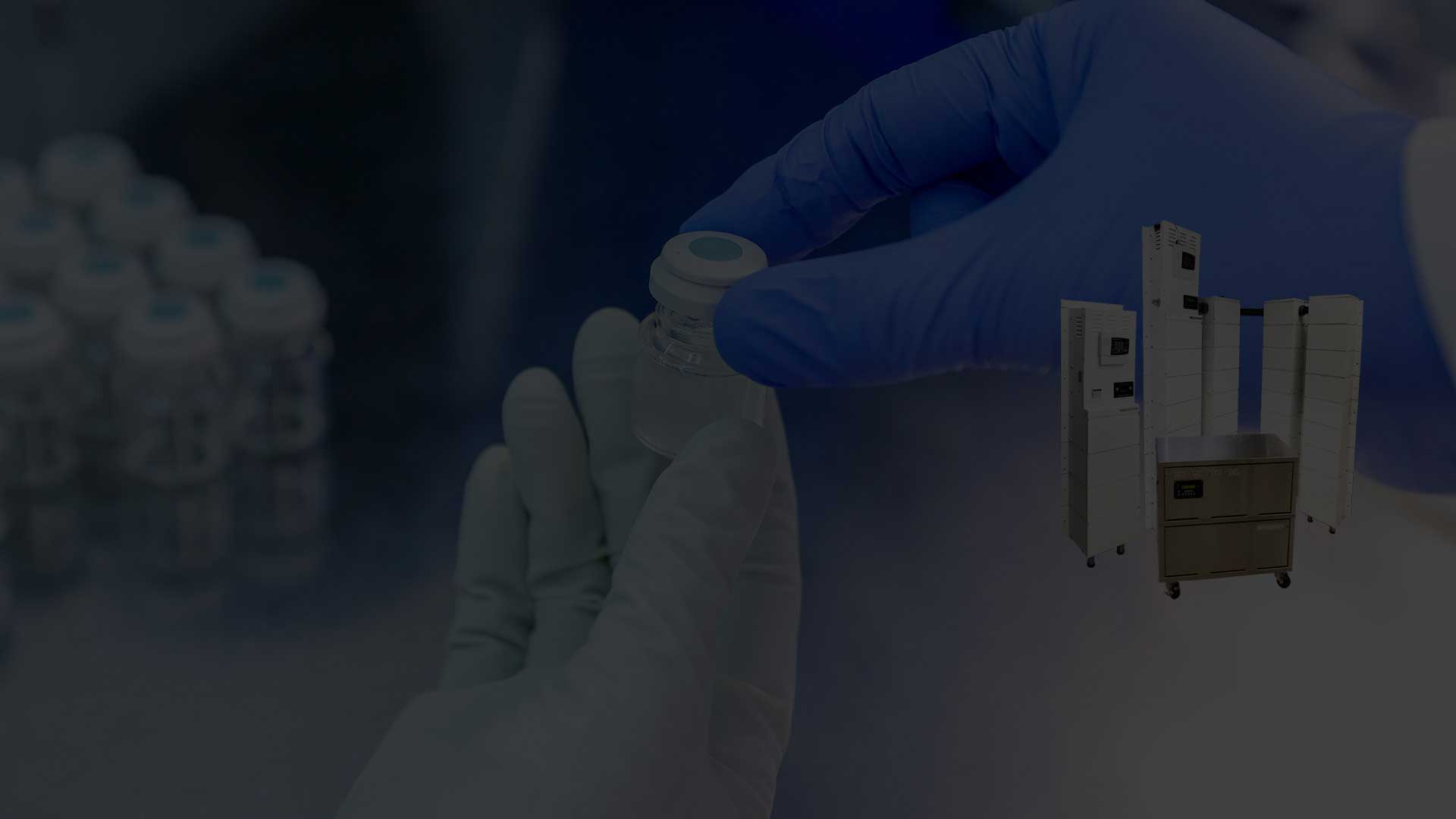Classification of Laboratory Reagents
Reagents can be classified into several categories based on their function and chemical properties.
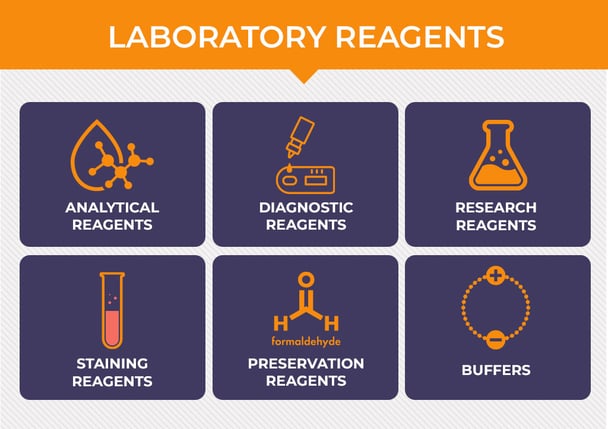
- Analytical reagents: These are used to analyze the composition or purity of a sample. Examples include acids, bases, and indicators.
- Diagnostic reagents: These are used to diagnose medical conditions or diseases. Examples include pregnancy test kits and glucose test strips.
- Research reagents: These are used in scientific research to study the properties and behavior of chemical compounds. Examples include enzymes, antibodies, and nucleic acids.
- Staining reagents: These are used to color or dye biological or microscopic samples for easier observation and analysis. Examples include hematoxylin and eosin.
- Preservation reagents: These are used to preserve biological specimens for later analysis. Examples include formalin and ethanol.
- Buffers: These are solutions that can resist pH changes when small amounts of acid or base are added to them. They are essential in many chemical reactions, particularly in biological systems.
Importance of Reagents in Laboratory Experiments
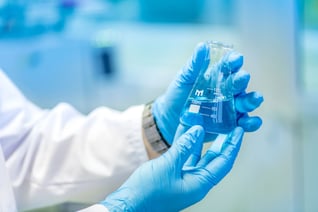
Reagents are vital for the success of laboratory experiments as they are crucial in initiating or facilitating specific chemical reactions or changes in a substance. They also find use in detecting and measuring particular properties or characteristics of a substance. They are essential to the study of chemistry and play a crucial role in various fields like chemical engineering where they are used in titrations or redox reactions.
Factors To Consider When Selecting Reagents For Your Laboratory
When selecting reagents for your laboratory, several factors must be considered to ensure that you are using the most appropriate materials for your experiments.
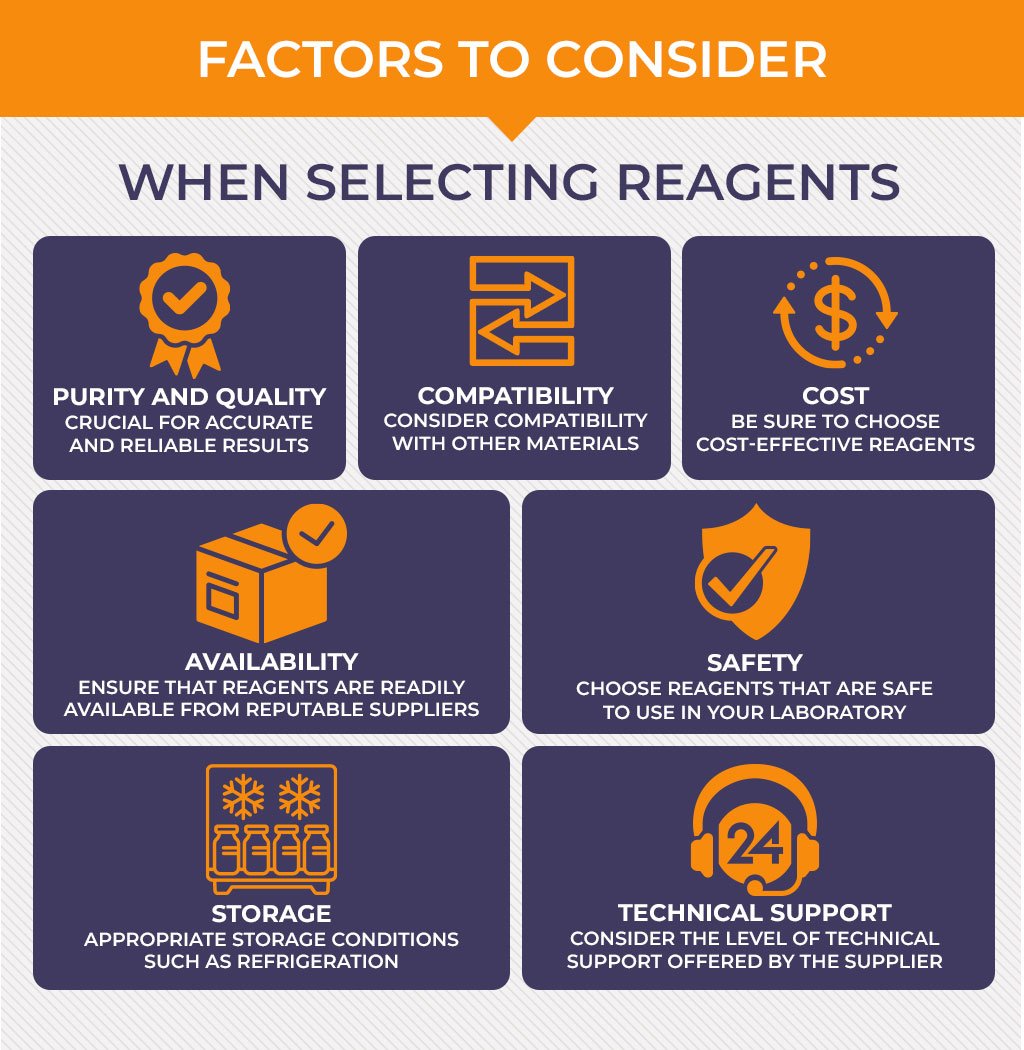
Purity and quality: The purity and quality of reagents are crucial for accurate and reliable results. Be sure to use reagents that have been certified or tested by a reputable supplier and meet the required specifications for your experiment.
Compatibility: Consider the compatibility of the reagents with other materials that will be used in your experiment, such as:
- The pH range
- Temperature range
- and other individual chemical properties.
Cost: The cost of reagents can vary widely, so be sure to choose cost-effective reagents for your research without compromising on quality.
Availability: Ensure that the reagents you select are readily available from reputable suppliers and that you have a reliable source for replenishing your stock.
Safety: Consider the safety aspects of the reagents, such as the toxicity, flammability, and potential for explosion. Choose reagents that are safe to use in your laboratory and that you have the appropriate safety equipment and protocols in place.
Storage: Ensure you have the appropriate storage conditions for the reagents, such as refrigeration or protection from light.
Technical Support: Consider the level of technical support offered by the supplier. It can be helpful to have access to an experienced chemist who can answer questions and provide guidance on the best use of the reagents.
By considering these factors when selecting reagents for your laboratory, you can ensure that you are using the most appropriate materials for your experiments and that your results are accurate and reliable.
Proper Storage And Handling Of Laboratory Reagents
Because of the crucial role laboratory reagents play in scientific experiments and procedures, they must be handled and used correctly to ensure the integrity of the experiments. Thus, laboratory facilities will be best served by standard operating procedures for handling, storing, and disposing of laboratory reagents.
Handling Reagents
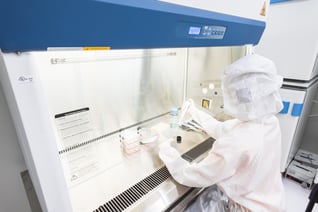 When handling reagents, it is essential to follow proper safety protocols. Many reagents are toxic or flammable, and some can cause skin or eye irritation. Therefore, wearing appropriate personal protective equipment, such as gloves, goggles, and lab coats, is necessary. It is also essential to read and follow the safety information provided on the label of the reagent.
When handling reagents, it is essential to follow proper safety protocols. Many reagents are toxic or flammable, and some can cause skin or eye irritation. Therefore, wearing appropriate personal protective equipment, such as gloves, goggles, and lab coats, is necessary. It is also essential to read and follow the safety information provided on the label of the reagent.
Storing Reagents
Another vital aspect of reagent handling is storage. Reagents should be stored in their original containers, with the labels clearly visible. They should be stored in a location that is cool, dry, away from heat sources and not exposed to direct sunlight.
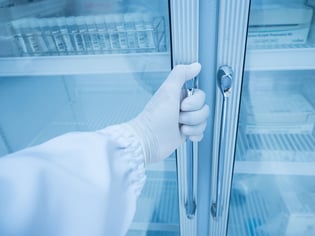 Some reagents may require special storage conditions, such as refrigeration or freezing. It is essential to check the expiration date of reagents before use and discard any expired ones.
Some reagents may require special storage conditions, such as refrigeration or freezing. It is essential to check the expiration date of reagents before use and discard any expired ones.
For end users of chemicals like reagents the most likely scenario for them needing to dispose expired inventory is a temperature excursion. While they can occur if the door is left open another common scenario is a power outage occurring—the number of which has increased by double in the last 10 years.
While door alarms and buffered temperature probes are fairly easy to source tools to keep track of the temperature of your storage device, a reliable and powerful backup power system for refrigerators can be harder to find.
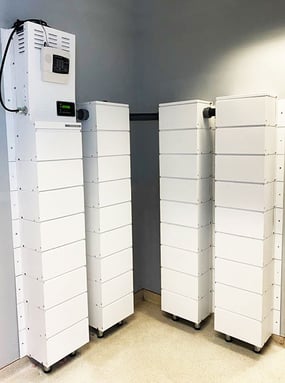 Luckily, battery backup systems offer instant and automatic power for laboratory appliances as soon as the power goes out. As a result, no staff needs to be on-site to keep track of or start the generator, plus sample and inventory will continue to remain safe—with no extra work required.
Luckily, battery backup systems offer instant and automatic power for laboratory appliances as soon as the power goes out. As a result, no staff needs to be on-site to keep track of or start the generator, plus sample and inventory will continue to remain safe—with no extra work required.
Additionally, their vertical, cabinet-like design and leak-proof batteries mean they can be installed in even the tightest spaces and oriented in anyway to make them fit. Plus, if your lab or storage room is truly tight on space, a hardwired backup power unit can instantly supply remote power to your appliance—directly via the outlet its already plugged into.
Regardless of what kind of system is the best fit, they ensure that your entire stock of biomedical and chemical samples are protected from a sudden loss of power (and the resulting temperature excursions) by guaranteeing a seamless transition from utility power to backup power.
Even better, is that battery generators can be outfitted with as much power as you want. So system’s can be designed with enough power to protect a facility’s inventory:
- Overnight
- All day
- Over a weekend
- Or even for a whole week.
So, to protect your facility from tens of thousands of dollars in lost inventory speak to a Medi-Products battery backup expert.
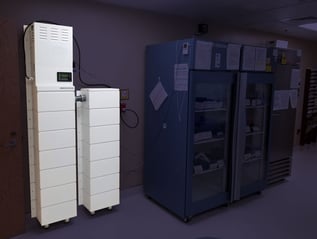 They’ll help design you a system that both meets your power needs and will fit inside your facility—for a much lower cost than what your vaccines are worth. So a backup power system pays for itself the first time your power goes out.
They’ll help design you a system that both meets your power needs and will fit inside your facility—for a much lower cost than what your vaccines are worth. So a backup power system pays for itself the first time your power goes out.
Designing a system for you is as easy as taking a picture of your appliance’s nameplate, and a photo of the room where it’s in.
Then, you just email both photos to our Product experts, and we’ll provide you with multiple options for backup power protection.
For more information contact: 1.800.7653237
